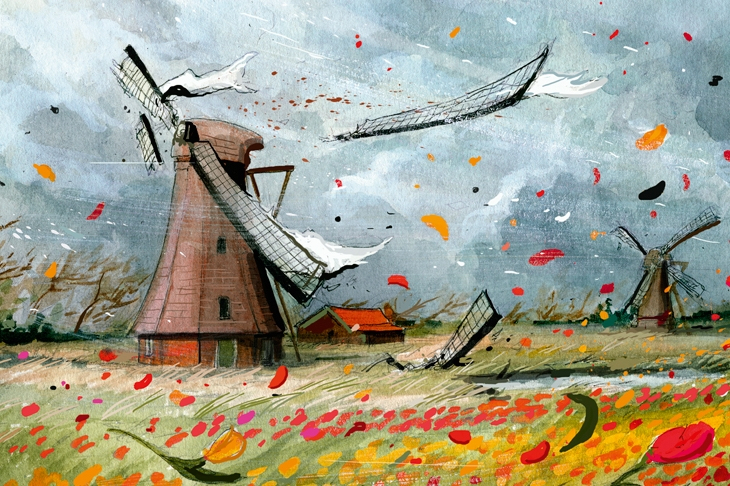Amsterdam
It’s not often that regional ballots in the Netherlands capture the attention of the international media. But last month that is exactly what happened. On 15 March, the so-called ‘provincial elections’ were held. Although technically these are regional, they also indirectly determine the composition of the Dutch senate – and, if the ruling parties lose their majority there, the chances of being able to pass legislation become very slim.
It’s part of a larger conflict between the authoritarian green agenda and the silent majority paying for it all
This time, however, the stakes were higher than ever – because, as incredible as it may sound, the Dutch government has turned against one of the most lucrative, efficient and remarkable groups in our society: the farmers.
The government, a four-party coalition led by Prime Minister Mark Rutte and his People’s Party for Freedom and Democracy (VVD), has decided that 30 per cent of all cattle farms need to be closed by 2030 in order to halve nitrogen emissions – which it says pose a threat to the Dutch environment, as protected under the European Union’s ‘Natura 2000’ regulations. Apparently we have a ‘nitrogen crisis’ because the gas causes certain plants to die or grow in areas where EU bureaucrats have decided that they shouldn’t.
Dutch farmers will be forced to either sell their land to the state now or face expropriation later. If the destruction of Holland’s farming industry is carried out in the way the government plans, there will also be consequences for the world’s food supply. Although we are not a big country, we are the second largest exporter of agricultural products in the world, after the US. It’s a remarkable position to hold, but if it’s up to our leaders we won’t have that title much longer.
The attack on farmers is part of a larger conflict between the authoritarian green agenda being pushed by our government and the silent majority paying for it all, but whose opinion is never asked.







Comments
Join the debate for just £1 a month
Be part of the conversation with other Spectator readers by getting your first three months for £3.
UNLOCK ACCESS Just £1 a monthAlready a subscriber? Log in